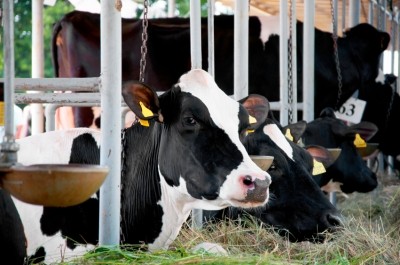Iron sulphate gets backing from EFSA for use with all animals

The European Food Safety Authority (EFSA) said it did not foresee any concern for consumer safety resulting from the use of the iron additive in animal nutrition, provided that the maximum iron content in complete feed was respected.
“There is no evidence that the use of ferrous sulphate monohydrate would change the iron concentration in edible tissues and products of animal origin,” said the Panel on Additives and Products or Substances used in Animal Feed (FEEDAP).
Ferrous sulphate monohydrate is extensively used in animal feeds as it is said to stimulate growth.
The Panel was asked to deliver a scientific opinion on the safety and efficacy of the additive for use in the diet of all animal species.
Iron is an essential trace element. As a constituent of hemoglobin, it is involved in oxygen transport. It is an electron carrier and thus plays a functional role in proteins involved in oxidative phosphorylation.
Feed dosages
Ferrous sulphate monohydrate is safe, said the Parma-based agency, when supplied up to maximum iron content per kilogram of feed of 450 mg for bovines and poultry, 500 mg for ovines, 600 mg for pets, and 750 mg for other species, except horses and fish.
The Panel estimated that for piglets a daily maximum dose of 250 mg of iron is considered safe “up to one week before weaning.”
Because of insufficient data, the Panel said it is not in a position to derive a maximum safe iron concentration in feed for horses or fish; as a provisional measure, the current value for other animal species - 750 mg/kg - could be applied to the dietary intake of iron for those animals.
Handling the additive poses a risk to the user in that ferrous sulphate monohydrate is an irritant and can corrosion of the skin, eyes and respiratory tract.
The additive contains up to 109 mg Ni/kg. Nickel is a dermal and respiratory sensitizer, and inhalation may cause lung cancer.
But the Panel said that given the high background concentration of iron and sulphur in soil and water, the supplementation of feed with ferrous sulphate monohydrate is not expected to pose an environmental risk.








